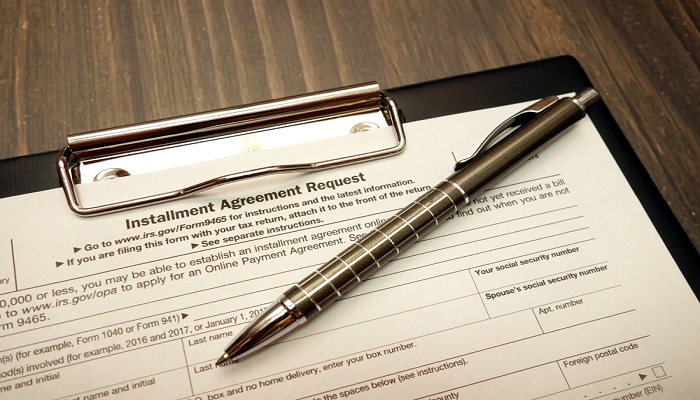
Table of Contents
Many times taxpayers find themselves in a situation where they owe taxes and are unable to pay at once. The IRS takes strict action when it comes to collecting back taxes and enforcing tax laws. If you find yourself in a situation where you can’t pay your taxes all at once, you can apply for various IRS payment plans that can help you pay your back taxes in a convenient way. In this blog post, we will discuss the different payment plans offered by the IRS and how they can help you clear back taxes. Read on.
What is an IRS Payment Plan?
An IRS payment plan is a payment arrangement that provides a taxpayer with an extension of time to pay off back taxes. When you work a payment plan with the IRS, you can avoid collection actions such as federal tax liens, tax levies, and wage garnishments. While you are enrolled for a payment plan, you will not be entitled to any tax refunds as they will be applied to your balance unless you have paid off the tax debt. It is advisable to pay as much as you can afford upfront and then apply for a payment plan to minimize interest and fees.
Related Blog Post: Key Takeaways from the Latest IRS Updates in the Wake of COVID-19
Eligibility Criteria for IRS Payment Plans
The following are the conditions that you must satisfy to qualify for an IRS installment agreement:
- You owe less than $10,000 in taxes, interest, and penalties.
- You have filed all your tax returns for the last five years.
- You have agreed to pay the amount you owe in full within three years.
- You cannot pay the amount you owe in full in one go.
- You haven’t filed for bankruptcy.
If you need more than three years to pay your tax debt or owe higher than $25,000, you will need to set up automatic payments through direct debit from your account. The same applies to businesses with a tax debt of more than $10,000.
Related Blog Post: Effect of the COVID-19 Pandemic on IRS Tax Problems
Don’t Let IRS Tax Problems Keep You Up at Night
Speak with an experienced tax attorney and take the first step toward peace of mind.
Fees for an IRS Payment Plan
There are three different payment plans that the IRS offers for taxpayers with different amounts of tax debts. The short-term plan is for 180 days or less and requires no setup fees. It is for individuals who owe less than $10,000. The long-term payment plan is for 180 days and more and requires direct debit payments from your bank account. The setup fee for this payment plan is $31 for online applicants and $107 when you apply through the phone or in person. This payment plan is for individuals who owe $50,000 or less and businesses that owe $25,000 or less. For businesses that owe less than $10,000 and individuals who owe less than $25,000, a long-term payment plan can be set up with another payment mode and requires a $149 setup fee.
The Final Word
If you owe back taxes and are unable to pay in full, you need to set up a payment plan with the IRS to avoid any serious collection actions. It is recommended to consult an experienced tax attorney who can help you decide the best IRS payment agreement and help you with all the paperwork required when setting up the payment plan. When looking for an IRS debt relief lawyer in Dallas, Texas, and nearby areas, connect with the seasoned attorneys of the Law Offices of Nick Nemeth. Our team of IRS lawyers has extensive experience in helping clients with IRS tax debt problems get a favorable outcome. To connect with one of our attorneys, call (972) 426-2553 or fill out our contact form, and we will take it from there.


